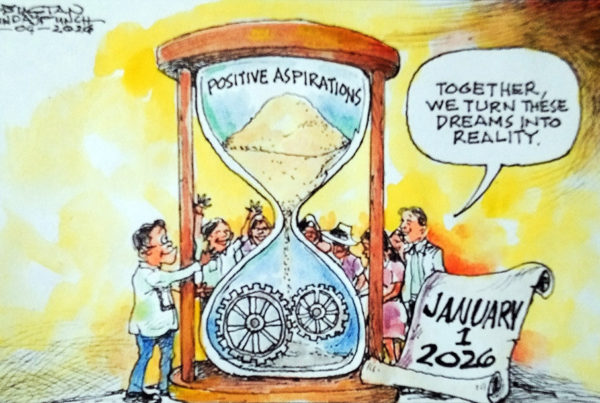Editorial
The council
ONE of the great things about the democratic system is that is it supposed to foster a healthy opposition, ideally ensuring that not one man or party will ever be able to hold despotic power and abuse authority. This holds true not just at the national level government but, equally important, at the local plane.
And so we have municipal, city and provincial councils — sanggunians we call them, a Filipino word that means a place or person that can be reliably turned to and depended on — tasked to legislate ordinances, check and approve the local administration’s proposed budget and other spendings, hold public hearings, and make inquiries on issues that impact on the community. The local legislators have a difficult but important responsibility of ensuring that the sanggunian does not end up as either a rubber stamp of city hall or, the other extreme, a hindrance to development.
The Dagupan council, for example, did a good check-and-balance job in streamlining this year’s proposed budget that contained vague items despite pressure and non-cooperation from the city’s administration. In the end, the people benefit as public funds are protected from potentially indiscriminate and unaccounted for spending.
In the small town of Bani, the situation is different as the majority of its sanggunian members, belonging to an opposing party to that of the mayor, have been made to appear to be obstructing the release of funds for specific development projects. On the other hand, the mayor is being pictured as autocratic without regard to established processes.
While the requirement for the recall petition against the councilors (and vice mayor) may have been met which hardly surprised anyone, the campaign for signatures contra the mayor is ongoing. The situation does not augur well for the town’s economic development and political maturity.
The town’s officials would be doing a great disservice if both sides pursue their respective recall petitions.
* * * * * *
P40 billion, P8 billion
IN a sense, China bullying us on the disputed Spratly Islands issue has spurred us to do something good. It goaded our military to “fight back,” dispatching Rajah Humabon to the war front.
Puny as it may seem, that move was gallant enough as it proved that we love our country and we are ready to protect it at all times. No matter that Rajah Humabon was of World War II vintage from the US Navy and saw “action” as merely a large patrol boat and not as a warship with the Japanese Self-Defense Force. More importantly, China’s arrogance seemed to have pushed P-Noy to pledge P40-billion over the next five years to modernize our armed forces.
This also brings us back to the question: Whatever happened to the P8-billion the government was supposed to have earned from the sale of Fort Bonifacio in 1995, under the presidency of Fidel V. Ramos? Wasn’t that money meant to augment our dilapidated armory?
Where did the billions go?









